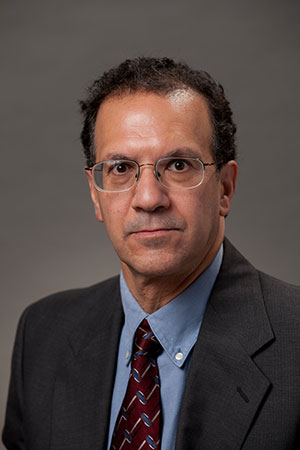Faculty Profile
Russell Bova
Professor of Political Science and International Studies; J. William Stuart & Helen D. Stuart '32 Chair in International Studies (1982).Contact Information
Denny Hall
717-245-1550
Bio
Professor Bova teaches a variety of courses on international relations and comparative politics. He has published numerous articles and book chapters on Russian politics and comparative democratization. He is also the author of How the World Works, an introductory international relations textbook.
Education
- B.A., State University of New York at Buffalo, 1977
- M.A., Indiana University, 1980
- Ph.D., 1985
Awards
- Ganoe Award for Inspirational Teaching, 2010-11
2025-2026 Academic Year
Fall 2025
INST 290 The Ukraine War & Intl Relat
Cross-listed with PSOC 290-02. By the time this class begins, it is possible that the war in Ukraine will have come to an end. Whether it has ended or not, this war has raised enduring questions about almost every big issue in the study of international relations. After an introduction to Ukraine, its recent history, its historical relationship with Russia, and its geopolitical significance, we will turn to those larger questions. What were the causes of the Ukraine war, and what does this war have to tell us about the future of war more generally? Is the "long peace" over, and is great power war becoming more likely? How stable is nuclear deterrence? Has the nuclear taboo eroded? Was the expectation that economic interdependence is an antidote to war wrong? Do economic sanctions work? In light of Ukraine, does the United Nations still have relevance? What is genocide, and has it occurred in Ukraine? Can Putin be prosecuted for war crimes? How and why do wars end? What paradigm of international relations theory best explains the Ukraine crisis? The goal will be to build on what you learned in the introductory IR class by examining both how IR concepts and theory help us to understand the Ukraine situation and how that situation might require critical rethinking of those very same concepts and theories.
POSC 290 The Ukraine War & Intl Relat
Cross-listed with INST 290-01. By the time this class begins, it is possible that the war in Ukraine will have come to an end. Whether it has ended or not, this war has raised enduring questions about almost every big issue in the study of international relations. After an introduction to Ukraine, its recent history, its historical relationship with Russia, and its geopolitical significance, we will turn to those larger questions. What were the causes of the Ukraine war, and what does this war have to tell us about the future of war more generally? Is the "long peace" over, and is great power war becoming more likely? How stable is nuclear deterrence? Has the nuclear taboo eroded? Was the expectation that economic interdependence is an antidote to war wrong? Do economic sanctions work? In light of Ukraine, does the United Nations still have relevance? What is genocide, and has it occurred in Ukraine? Can Putin be prosecuted for war crimes? How and why do wars end? What paradigm of international relations theory best explains the Ukraine crisis? The goal will be to build on what you learned in the introductory IR class by examining both how IR concepts and theory help us to understand the Ukraine situation and how that situation might require critical rethinking of those very same concepts and theories.
INST 401 Great Power War
It has been more than 75 years since the last great power war, and optimistic observers have suggested that this "long peace" among the great powers is likely to persist. Realist scholars, however, have never accepted the permanence of the "long peace," and recent developments in world politics have led many to suggest great power war, and, perhaps, a third world war, is becoming increasingly possible, if not inevitable. This seminar will begin by looking at the general causes of war and peace among great powers as reflected in both international relations theory and international relations history. On that foundation we will then look at the current world situation and examine some of the possible causes, catalysts, and scenarios of great power war in the mid-21st century.
Spring 2026
INST 170 International Relations
Cross-listed with POSC 170-01.
POSC 170 International Relations
Cross-listed with INST 170-01.
INST 273 Int'l Political Economy
Cross-listed with POSC 273-01.
POSC 273 Int'l Political Economy
Cross-listed with INST 273-01.
